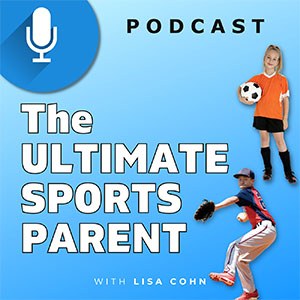Playing Time in Youth Sports

Here’s an interesting study result: If young athletes have to choose between losing and getting to play the whole game, they choose playing time. That’s a tidbit from Steven Frierman, a professor at Hofstra University and a former youth sports coach.
Yes, that’s right. Winning isn’t everything to young sports kids, he says. Often, having fun, being with friends, and getting a lot of playing time are more important, he says.
As parents, if you’re looking to motivate your young athletes, it’s critical to understand why they play and what they enjoy, says Frierman.
Sometimes-and unfortunately-they’re playing sports because their parents want to live through them and are insisting they play. That’s not a great reason for kids to participate.
Do you understand why your kids are playing?
Coaches, too, need to understand why kids are participating in youth sports and what their goals are…
Sometimes, coaches will ask parents and kids to fill out a survey at the beginning of the season that identifies why the kids are playing and what they want to get out of it. That’s a good idea. It helps ensure that parents, kids and coaches are all on the same page.
While you’re trying to understand what motivates your young athletes, it’s important to try to underplay the value of winning.
Both parents and coaches should focus on setting goals to support their athletes’ mbotivation. These can be goals athletes enjoy reaching for-stealing five bases, for example. Set these goals based on the position the child is playing, Frierman suggests.
This will help kids focus better and play in the here-and-now. And guess what? If they’re focusing on the present-and not on the win-they’re more likely to perform well and win!
If coaches want to reward kids, they should consider giving them positions they want and other perks associated with playing their sport, he says.
Listen to the podcast here:
Related Articles on Kids’ Mental Game:
- When Sports Kids Don’t Get Enough Playing Time
- How to Help Athletes Get More Playing Time…
- How Young Athletes Can Feel Confident with Less Playing Time
*Subscribe to The Sports Psychology Podcast on iTunes
*Subscribe to The Sports Psychology Podcast on Spotify
Improve Your Mental Game From Anywhere In The World

We’re certain that, as a parent, you want to help your child develop confidence and discipline in sports and life. And as a sports parent, you’d love for your children to reach their potential in sports. But encouraging your child to strive for greatness without pressuring them can be a challenge.
You can get expert mental coaching with us from anywhere. Meet with us via Zoom, Skype, FaceTime or phone call. With today’s video technology, we are able to connect with athletes and coaches all over the globe.
Call Us Today to Schedule Your Free 15-Minute Session.
Find Out How Your Athlete Can Benefit From One-on-One Mental Coaching!
